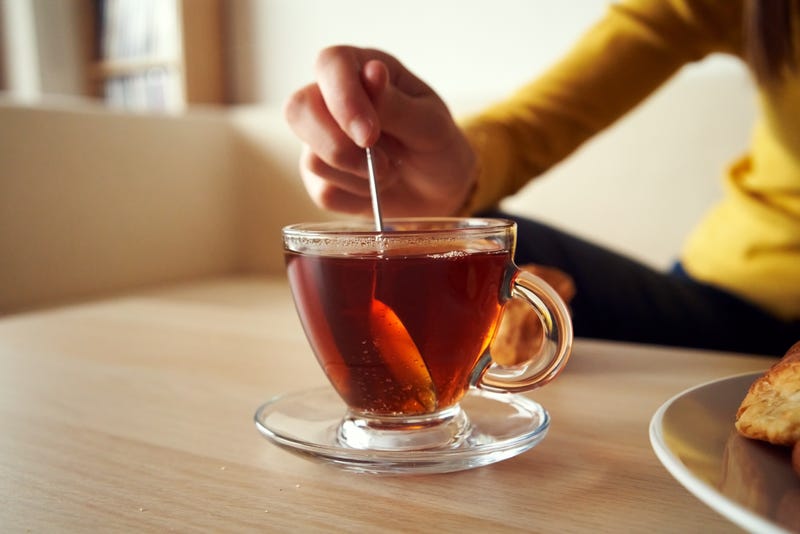
According to a study published Tuesday in the Annals of Internal Medicine journal “higher tea intake was modestly associated with lower all-cause mortality risk,” for people who drank at least two cups per day.
Questionnaire answers completed from 2006 to 2010 in the UK Biobank were used to conduct the prospective cohort study. Self-reported answers from nearly 500,000 men and women were included.
Data about mortality from all causes was also covered, including cancer, all cardiovascular disease, ischemic heart disease, stroke, and respiratory disease. A median follow-up timeline of 11.2 years was used to measure impact of tea intake.
In the U.S., tea can be found in nearly 80% of households and more than 159 million Americans drink tea daily, according to the Tea Association of the U.S.A. Inc. Worldwide, it is the most popular drink next to water.
“Tea is frequently consumed worldwide, but the association of tea drinking with mortality risk remains inconclusive in populations where black tea is the main type consumed,” said authors of the study published this week.
Study findings suggest that high levels of tea intake can be part of a healthy diet.
“Findings were similar regardless of whether participants also drank coffee or not or of genetic score for caffeine metabolism,” said the study.
Earlier studies have also linked tea to positive health benefits.
“The evidence supporting the health benefits of tea drinking grows stronger with each new study that is published in the scientific literature,” said a study published in 2014. According to that research, tea is also one of the most affordable beverages on the planet.
Penn Medicine this year said that “numerous studies have shown that a variety of teas may boost your immune system, fight off inflammation, and even ward off cancer and heart disease,” and listed the benefits of white tea, herbal tea, green tea, black tea and oolong tea. However, the hospital said tea drinkers should be wary of detox teas, tea drinks with excess sugar (including bubble teas) and herbal tea blends that may contain allergens.


